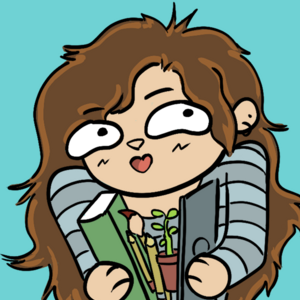The city of Halter dated back to those free-for-all times when a person might venture out, stake any old swatch of land, and name it for themselves. That was exactly what had happened with Charles "Charlie" Halter, and when the mining rush filled in after him, the name stuck.
A few decades after his passing, a few unfortunate things came to light. Firstly, Charles Halter's surname wasn't Halter at all, it was Hincter. And secondly, there surfaced the regrettable reports that Charlie had been involved in a number of lewd relations with horses. Read: not just one horse, although historians were out on exactly how many horses were tangled up in the inappropriate history of namesake Charles "Charlie" Hincter "Halter".
The town museum left these parts out, but everyone around here knew the story. It was page one of the Halter Book of Fun Facts, partially because a town like Halter didn't have a lot of fun facts.
Sometimes, it made me wonder. When the lie was so blown that everyone knew the lie, or at least knew that there was a lie, what made us all keep pretending?
So, that was Halter. A real place named for a fake person. Perhaps it was all for the best. After all, I'd rather grow up in Halter than in Hincter.
My head lay smooshed against the passenger side window of Navid's hand-me-down Lexus. The only component of the car newer than 2002 was the radio, of which Navid was fiercely proud. He had it tuned to the local station. After ten pm, KHRT "The Heart" played drowsy, easy-listening jazz to lull the town to sleep. It was working. My eyes fluttered, shoulders slumped into the chewed-up upholstery. I stared into the soft glow of the clock, anticipating the turn from 12:59 to 1:00.
"If I lived in a house like Melanie's," Navid said, "I would never leave. I would ask to be homeschooled. And I would take a shower in a different bathroom every day."
"If I lived in a house like Melanie's," I said, dark strands of hair tickling my lips, "I would throw a party like that every night."
We rounded the base of a lazily sloped mountain dotted with decommissioned mine shafts. Navid braked sharply at a sudden stop sign. I jostled in my seat, feeling alcohol sloshing in my brain.
"Sorry," he said, fingers tense around the wheel. Navid was newly sixteen and trigger happy with the pedals.
"S'fine."
I leaned back against the window. My mom's blue beaded earrings jangled against the glass. If she knew I'd taken them, she'd have a fit. It was a greater transgression than missing my curfew, which I'd also done.
"Does no one else think it's..." Navid paused like he was about to say something sacrilegious. "...does no one else think it's kinda dumb to host a party on a Monday?"
"It's a short week."
"Even on a short week."
"We can't not celebrate a short week," I explained. "The short week needs to feel appreciated."
"Yeah but... wouldn't it make more sense to celebrate on Saturday? Or Sunday?"
That would've been reasonable. The Quarterly had evolved, from one Halter High class to the next, into a ritual. That was the thing about rituals, and for that matter, high schoolers: they weren't reasonable.
There were few events in a high schooler's life more worthy of celebration than a three-day weekend. And then there was the champion of all three-day weekends: the Halter Public School District Quarterly Educational Conference. Every three months, teachers convened to discuss educational strategies, propose budget changes, and, off-the-books, complain about problem students.
And it was always, by some act of grace, held on a Monday.
Thus, the Halter Public School District Quarterly Educational Conference Three Day Weekend Bash was born, or the HPSDQECTDWB for short. Or The Quarterly for short and sensible.
"Monday or not, are you glad you came?"
"Ask me tomorrow," he said, but he was grinning. "We'll see how I feel."
"I don't remember you having anything to drink...?"
"Zero drinks. But it is way past my bedtime."
We puttered around a long curve that emptied out into a sleepy neighborhood. Cookie-cutter houses dotted the street, dark windows leering. The radio played softy and sleepily. I stared expectantly out the window, watching the street roll under us, washed out in the glow of our headlights.
This was my favorite and least-favorite part of the drive home from Melanie's. My brain buzzed with helpless anticipation, a tumbling procession of thoughts I'd told the school guidance counselor I was no longer beholden to.
A tiny park, cropped short by the impeding mountain base, slid into view. Just a small soccer field, a swingset, and two picnic tables.
It was the last place anyone had seen my brother Peter.
I stared at it, because I had to stare at it. It wasn't much to look at, overgrown and weedy with disrepair. This used to be the part where my stomach tightened and my throat went dry. Now, I'm just queasy. I must be getting better.
The school guidance counselor was unclear on whether I should avoid the park where my brother had last been seen. I had stopped seeing the guidance counselor when I was able to convince him that I wasn't dwelling. That was all he wanted to know. Honestly, he seemed happy to free up the time slot for students more obviously and disruptively acting out.
The truth was, I drove by the park whenever I got the chance. It was a kind of morbid sickness. Sometimes I just wanted to see it. I'd tell my mom I was going to the lake, then walk over and stare out across the half-length soccer field, trying to imagine how it all went down.
Navid noticed me staring and winced. "Ah, Alex." He tapped the gas and gunned past a Twenty is Plenty lawn sign. "Sorry. I could've gone another way. I should have."
"No, it's alright." I stared until the unremarkable little park eased out of view. "I'm over it. Really."
Navid gave a somber nod and tried to make sympathetic eye contact, which I avoided. One nice thing about lying was that the more you insisted upon a lie, the more everyone around you agreed to treat it as true. Whether or not they all knew. If we all agreed to the lie, we could live in that much more pleasant reality where Alex Gartlan was totally fine. We didn't have to believe it.
Navid talked the whole rest of the drive, which I appreciated. He complained about having to be up early for dress rehearsal, but it was toothless, like the way track runners complained about running.
I hopped out of the car and waved goodbye. Thanked Navid for the ride. The evening wasn't quite chilly in the same way that late fall wasn't quite winter.
"Good luck getting past your mom," he said, smiling. He had one of those cute, I'm-not-confident-enough-to-show-all-of-my-teeth smiles.
"I don't need your luck. I'm quiet as a mouse and sober as a... as a..."
"Sure you are."
"As a mouse," I finished. "Mice are quiet and also sober."
"Sure they are," he said, showing a couple teeth this time. "See you tomorrow, Alex. If you're not grounded."
He gave me one last look - the kind of look someone gives you when they want to say something but don't know how - and my stomach tightened.
"Thanks, Navid," I said again, and shut the door before he could say a word.
He backed down the short driveway, headlights bouncing as he dipped in and out of the gutter. He spun around, barreling over the neighbor's wildflowers, and slid out of view, back toward the park and its long-gone ghosts.
I stood and stared until long after the headlights vanished. I stared in the direction of the park, as if my vision could bore through homes, through night, through time.
I think part of me still believed that if I knew what happened the night Peter vanished, then I could finally let it go. The guidance counselor told me that was just another excuse to let the past hold me captive. He said I wanted to dwell. I think I agreed. After all, what was the alternative?
Meanwhile, the only person in the world who knew exactly what happened that night was sleeping soundly in her bed, and if she heard me come in this late, I was definitely grounded.











Comments (0)
See all